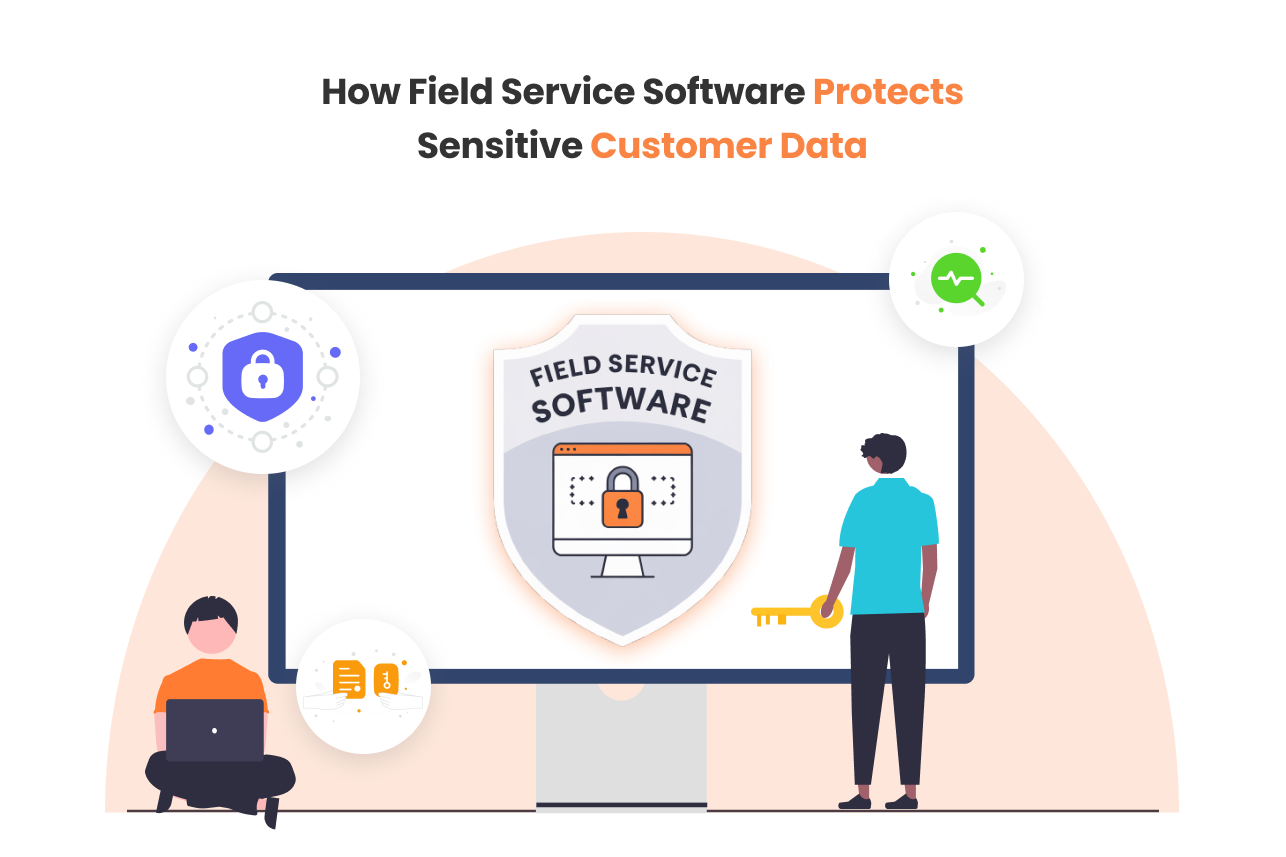In today’s digital age, protecting sensitive customer data is more important than ever, especially for field service businesses that handle a large amount of customer information daily. From addresses and contact details to payment information and service history, field service companies must ensure that data is secure and compliant with privacy regulations. Field service software plays a crucial role in safeguarding this information through advanced security features and best practices. Let’s explore how field service software protects sensitive customer data and why it’s vital for your business.
1. Secure Data Storage with Encryption
One of the most fundamental ways that field service software protects sensitive data is through encryption. Encryption converts data into a coded format that is unreadable without the correct decryption key. This ensures that even if unauthorized parties gain access to the data, it remains protected and secure.
Most reputable field service software solutions use advanced encryption standards, such as AES-256, to secure data at rest (stored data) and in transit (data being transferred). This means that when customer data is stored in the software’s database or sent between the office and field technicians, it is protected from potential breaches.
2. Role-Based Access Control (RBAC)
Field service software employs role-based access control (RBAC) to ensure that only authorized personnel have access to sensitive customer information. RBAC allows administrators to define user roles and permissions based on job functions, ensuring that employees only access the data necessary for their role.
For example, technicians in the field may only need access to basic customer information and job details, while managers might require access to more comprehensive data, such as financial records or customer feedback. By limiting access, RBAC minimizes the risk of internal data breaches and ensures that sensitive information is handled appropriately.
3. Two-Factor Authentication (2FA)
Two-factor authentication (2FA) adds an extra layer of security by requiring users to verify their identity through two separate methods before gaining access to the software. Typically, this involves entering a password and a unique code sent to the user’s mobile device or email.
2FA significantly reduces the likelihood of unauthorized access because even if a password is compromised, the additional verification step provides a barrier against potential intruders. Many field service software solutions offer 2FA as an optional or mandatory feature, enhancing overall security.
4. Regular Software Updates and Security Patches
Keeping software up to date is essential for maintaining security. Field service software providers regularly release updates and security patches to address vulnerabilities and protect against the latest threats. These updates are crucial for preventing cyberattacks, such as malware, phishing, and ransomware, that could compromise customer data.
Businesses should ensure that their field service software is set to update automatically or that they have a process in place to apply updates promptly. Staying current with software updates helps protect sensitive customer data from emerging security threats.
5. Data Backup and Disaster Recovery
Field service software often includes data backup and disaster recovery features to protect against data loss due to accidental deletion, hardware failure, or cyberattacks. Regular data backups ensure that customer information is not lost and can be quickly restored if needed.
Disaster recovery plans, including data redundancy and cloud storage, help businesses recover from unexpected events, minimizing downtime and protecting customer data integrity. These features ensure that sensitive data is safe even in the face of unforeseen challenges.
6. Compliance with Data Protection Regulations
Field service software is designed to comply with major data protection regulations, such as GDPR, CCPA, and others relevant to specific industries. Compliance features include data encryption, access controls, and privacy settings that help businesses meet legal requirements for data protection.
By using compliant software, field service businesses can avoid legal penalties and maintain customer trust, knowing that their data is handled according to the highest security standards.
Conclusion
Field service software plays a crucial role in protecting sensitive customer data through advanced security measures such as encryption, role-based access control, two-factor authentication, regular updates, and compliance with data protection regulations. For field service businesses, safeguarding customer information is not just about preventing data breaches but also about building trust and maintaining a reputation for reliability and security. Investing in secure field service software is an essential step in protecting your business and your customers in today’s digital landscape.
